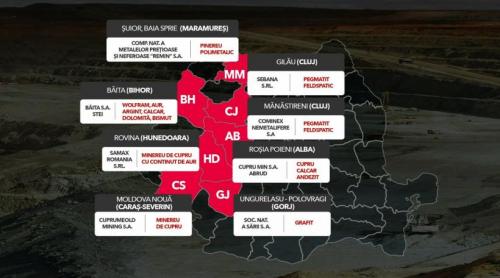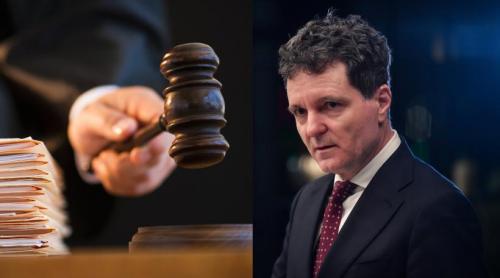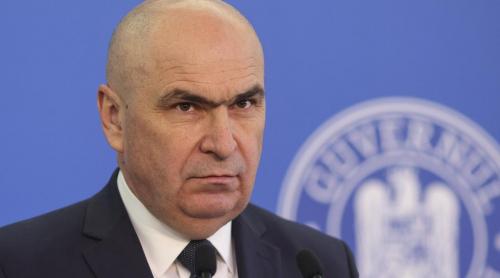
The Middle East is beyond doubt one of the most dangerous crisis regions worldwide. The next war, terrorist attack, or failed peace initiative may lurk just around the corner. Compared to the politics of this region, a rollercoaster ride is downright calming.
The Middle East is beyond doubt one of the most dangerous crisis regions worldwide. The next war, terrorist attack, or failed peace initiative may lurk just around the corner. Compared to the politics of this region, a rollercoaster ride is downright calming.
And yet the Middle East is also a region that, throughout its innumerable conflicts, has hardly changed, languishing in a strange kind of standstill. There must be an intrinsic correlation between the lack of developmental dynamism of most Middle Eastern societies and the fact that the region is so crisis-prone.
The conflict between Israel and the Palestinians stands out as an example of the static nature of this key geopolitical region, because it seems to be completely unaffected by any international upheaval. The Ottomans, the British, decolonization, the Cold War, numerous American Presidents, and even more international mediators have come and gone, but the parameters of this conflict and the inability to find a solution never seem to change.
However, this impression – correct where the past is concerned – might prove deceptive in the future, because two global megatrends will subject the region to more profound change than all the many previous political crises and wars were able to bring about.
The first is globalization, by which ever-larger parts of the Arab world, beginning with the Persian Gulf and its oil countries, will be influenced, albeit slowly, both economically and culturally.
With the shift of wealth and power from the West to the East, the pressures of globalization will increasingly come from the East. In Morocco, for instance, investment from the Arab oil countries has already significantly reduced Europe’s importance.
The inherent contradiction between a governance structure incapable of change and economic modernization, between cultural and religious conservatism and social and normative transformation, will therefore increase and bring about new, additional frictions if positive answers to these fundamental changes cannot be found.
The second megatrend is the global climate crisis. Apart from those countries that are threatened – partly or completely –by rising sea levels, global warming will primarily affect the desert belts and their already precarious water supplies. And, while the conflicts in the Middle East are primarily about territory, this includes the scarce water resources so essential for survival.
Rapid population growth, a dramatic increase in water consumption due to industrial, agricultural, and tourism growth, and rising standards of living will make the water issue even more important to the region’s political stability than it is already.
A sustainable answer to questions of such vital importance to the Middle East only makes sense if it is regional in character. And the same applies to the increasing demand for energy: although the region as a whole is rich in energy resources, their uneven geographical distribution suggests that any viable solution must be built on cooperation.
Of course, resolving the political crises and conflicts remains the top priority. To make regional peace and stability possible, however, the region’s very young and rapidly increasing populations require an economic perspective that makes their participation in globalization possible – in a dignified manner and grounded in their own culture and history.
The Middle East’s individual states won’t be able to manage this without regional cooperation. The European Union’s successful track record could therefore provide an almost perfect model.
In fact, the preconditions for intra-regional cooperation – up to partial integration of the interests of the countries involved – look more auspicious than they did in Western Europe in the early 1950’s. Europe had neither a common language, nor was it as religiously and culturally as homogeneous as the Middle East.
For Europe, the starting point was visionary leaders like Jean Monnet and the creation of new institutions like the Coal and Steel Community. In the Middle East, the process of regional integration could begin with water and energy. A common market for goods and services could follow, along with a regional security system.
This would, finally, give the Middle East – a region poor in growth and rich in conflicts – a distinct identity, making it a player in global economic terms as well, and thus enabling it to become the architect of its own future.
Europe, once the continent of war, has shown that this is possible. And Europe can help the Middle East – its neighboring region – achieve this strategic objective. An instrument for it already exists: the new Union for the Mediterranean.
In any case, the time of standstill in the Middle East is coming to an end. Whether the consequences of this development will be good or bad depends on whether the region can muster the foresight and strength actively to shape this process. Imagination, vision, and pragmatic perseverance will be necessary. What is needed now is an Arabian Jean Monnet.
Joschka Fischer was Germany’s Foreign Minister and Vice Chancellor from 1998 until 2005. A leading member of the Green party for almost 20 years, he helped turn this former protest movement into one of Germany’s ruling parties.
Copyright: Project Syndicate/Institute for Human Sciences, 2008.
www.project-syndicate.org
Translation from German: Jan Doolan
Citește pe Antena3.ro

















